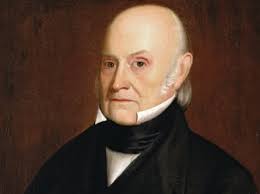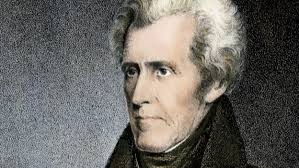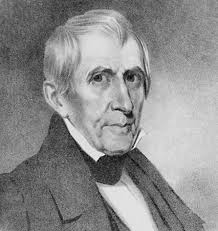FEBRUARY 9 — ELECTIONS: 1824 John Quincy Adams becomes president; 2005Pres. Bush asks for $950M to help victims of Indian Ocean Tsunami; 1971 65 dead and thousands injured in San Fernando earthquake
FEBRUARY 9
1825 –John Quincy Adams becomes president.
What exactly is the difference between the Corrupt Bargain and the spoils system we have in place to this day? I’ll try to get to that in a minute or two. Even though Andy Jackson and his Jacksonian Democrats won the most popular and electoral in the election of 1824, he didn’t get a majority, and therefore per the 12th amendment, the decision went to the House of Representatives, who gave the election to former Federalist JQA, thanks mostly to Henry Clay and his backroom dealings. Let me rewind a little bit here. The Democratic – Republican Party, who had dominated the presidency since 1796, began this election in its usual King Caucus style.
For president, they nominated former Secretary of War, now Secretary of the Treasury George William Crawford, a slave-owner from Georgia. For vice president, the party nominated Albert Gallatin from Pennsylvania, whose big claim to fame was using his negotiating skills to end the Whiskey Rebellion. But the days of the King Caucus, which had ruled American politics since Jefferson, would be coming to an end as candidates from other parties began emerging. JQA, a former Federalist, became disenfranchised with his party since he supported the Louisiana Purchase and the party did not, and switched to the Democratic Republicans.
Old Hickory Andrew Jackson, hero of the War of 1812, represented the backwoods common man of the south. He too was a Democratic Republican, but from the west side of Tennessee and criticized elitist southeastern politics. Jackson’s common man approach would help him form his own party, but for now he would run on the ticket as a Democratic-Republican. Speaker of the House Henry Clay, from Kentucky, who had actually freed slaves and took them back to Africa, who had no formal law education but basically interned his way into being not just a lawyer but one of America’s best ever. So there you have it, all four of your players: Adams, Jackson, Clay, and what’s-his-name. Oh yeah, Crawford, the guy the party actually nominated, wasn’t gaining ground in this election at all. Before the election, Crawford has a stroke but rebounded quite nicely, however was somewhat debilitated, and people began doubting his abilities to run the country. In November, the voting began, and for the first time ever, included a popular vote. Finally on this day in 1824, the results were announced.
Old Hickory Jackson won 99 electoral and 153K popular, Adams received 84 electoral and 109k, Crawford 41 electoral and Clay 37. Although Jackson got the most votes, he still didn’t get the majority, and the election went to the House. Meanwhile, New York Senator Martin Van Buren, initially a supporter of Crawford’s, now began to support Jackson, and would later help him build the new Democratic Party. But for now, per the 12th amendment, the vote would be between Jackson, Adams and Crawford. Clay, who was still Speaker of the House, had already made up his mind he would run in the next election, and figured he’d face Old Hickory again, and Jackson would probably beat him. So he threw his support for Adams, and used his influence to persuade other members to vote for Adams, and sure enough. JQA got exactly the votes he needed to become president. Once Adams was in office, Clay was magically appointed Secretary of State.
I go over the Corrupt Bargain on my December 1st ep. Yet four years later Andrew Jackson would also reward his constituents by giving them office jobs, and he called it the Spoils System. So what’s the difference?
Sounds like four years, many would say.
1773 William Henry “Cincinnatus of the West” Harrison, #9.
…Ol’ Tippecanoe was born the youngest of seven children in Berkeley VA on a plantation. His father, Benjamin Harrison, was the governor of Virginia, a signer of the Declaration of Independence and a good friend of George Washington. Benjamin wanted young William to grove up to be a physician, but William dropped out of med school at University of Pennsylvania in 1791. Instead, he joined the First Infantry of the Regular Army, headed to the Northwest territories, and served under General Mad Anthony Wayne. Fighting the Northwest Indian Confederation, Harrison served at the Battle of Fallen Timbers, named as such due to a tornado which destroyed a bunch of trees in the area. This opened most of the Ohio area to settlement.
In 1795, Harrison married Anna Symmes, daughter of prominent Judge Symmes, who didn’t think Harrison’s military life was appropriate for Anna. Judge Symmes would not allow the marriage, so William and Anna eloped, and then later had six children. One of these kids, John Scott Harrison, grew up to be a congressman in Ohio, and father of Benjamin Harrison, who was the 23rd president. Anyway, William resigned from the army in 1798, and was appointed Secretary of the Northwest Territory by President John Adams. As governor of the territory, which included today’s Ohio, Indiana, Illinois, Michigan, and Wisconsin. He helped to get legislation dividing the Territory into the Northwest and Indiana Territories.
One of the Governor Harrison’s jobs was to negotiated treaties with the Native Americans in the area, but in many cases the Indians simply got shafted. One time a treaty gave one penny each for two hundred acres. In all, the treaties transferred 51 million acres to the United States for an average of $2 each, and Harrison had the strongarm of the US Military to enforce the treaty, until Tecumseh came forth. Legend has it, Indian leader Tecumseh once outsmarted William Harrison by making the sun stand still. The story on that one goes, Tecumseh got his hands on an almanac from some white settlers, and figured out the next solar eclipse. Harrison lost the bet and forked over $50 back to tTecumseh. OK so I made that last part up, but the whole story has been questioned through history. Make no mistake; Tecumseh would not give up easily.
In 1811, Indian resistant boiled over, and the Battle of Tippecanoe was on. Harrison led a force of 950 men to attack the Indians, but the Indians attacked first, two hours before dawn. When the sun came up, Harrison’s men were able to repel the attack but sustained 190 casualties. The Native Americans scattered away, but continued to threaten settlers. In the War of 1812, Harrison was promoted to Brig. General, and in 1813 fought Tecumseh once again in the Battle of Thames, just north of Lake Erie. On October 5th, Gen. Harrison defeated the combined British and Indian forces, and Ol’ Tippecanoe’s Army not only killed Tecumseh, but mutilated his body so badly that Harrison wouldn’t allow his British captives to identify the body. The Native Americans left the Northwest Territories, this time for good.
After the War came to a close, Harrison mode his family back to Ohio, then was elected to the House of Representatives, and in 1836, was nominated to run for president for the Whig party. However the incumbent, Martin Van Buren, won a reelection. Harrison campaigned against Van Buren again in 1840, and by now a large Andrew Jackson backlash was brewing, and the Whigs wanted Jackson’s hand-picked Van Buren and his banking systems out of the White House. Harrison picked John Tyler to run as his vice-president. The first American presidential campaigns began, and Ol Granny Harrison marketed himself as a common man who grew up in a log cabin, even though he grew up with a rich family on a plantation. In fact, you know where the nickname booze came from? Since Harrison was using log cabin and cider barrel imagery, he issued campaign memorabilia in the form of log cabin shaped whiskey bottles that were made by…wait for it…the EC Booz distillery! Ol Tippecanoe and Tyler too was the campaign slogan, which sounds like Winnie the Pooh and Tigger too for the child in all of us. But I digress. The tactic worked. Even though Harrison only won by less than 150,000 popular, he swept the electoral 234-60. He was the oldest man to be president to this point at age 68!
He gave his inaugural in February 1841 on a cold rainy day, not wearing his overcoat. He spoke for nearly two hours about his nationalistic outlook and how he would be obedient to the will of the people as expressed through Congress and blah blah blah. But he got sick on that day, and never recovered. The doctors tried everything: opium, castor oil, wine and brandy. He was bleed-cupped, which is when a hot cup is placed onto the skin to cause a blister. The thinking there was that his illness would be moved to that blister. I guess eyte of newt and tongue of toad was just too old fashioned for the doctors, and William Harrison died on pneumonia, just one month after being in office. Anna didn’t even get a chance to move to the White House to become first lady. John Tyler became president and acquired the nickname, His Accidency. Anna would outlive her husband by two decades. These days, she rests with her husband at the William Henry Harrison Tomb State Memorial in North Bend, Ohio.
“I’d rather have a bullet inside me than to be living in fear of one,” he once said. Good stuff. Happy birthday William!

1895 — William George Morgan invents Mintonette. That, my friends, was the name that was chosen before it was renamed to Volleyball. It was renamed volleyball because in the game you volley the ball back and forth over the net. And the best part about volleyball? Why, the bikinis of course! God bless America!

1864 – Happy anniversary Elizabeth Bacon and George Custer. Elizabeth was quite an amazing woman. When her husband was killed in the Battle of Little Bighorn, President Ulysses Grant blamed Custer for the defeat; Elizabeth began a campaign of book writing to clear her husband’s name. She defended the justice of the Indian wars by saying that the American soldiers suffered frontier privations in order to protect innocent Anglo settlers, and Native American braves were vicious killers who exploited their wives, according to History.com. Custer, as she said, was a selfless martyr to the cause of American westward expansion. Others didn’t agree, and when Elizabeth passed away, George Custer was called a vain and foolish egoist.



